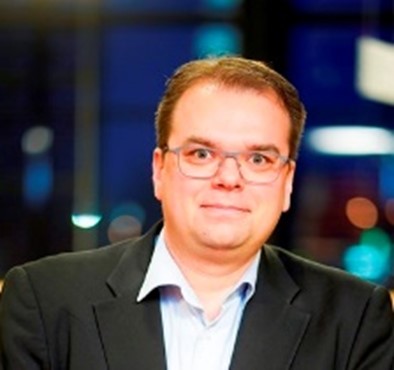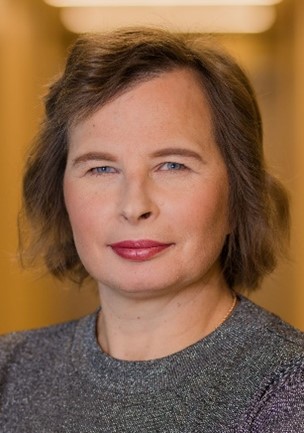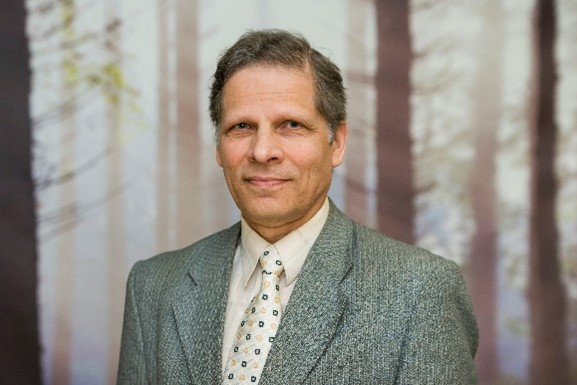NJF will elect President for the period 2022-2025 in June 2022
The President is Chairperson of NJF Board and head of the Secretariat, which is further made up by the President and the Secretary General. The President encourage NJF national boards to organize activities, be a spokesperson for NJF, make NJF attractive to sponsors/organisations/authorities/companies et cetera. Take the lead in re-vitalising NJF, attract new members, find new ways and ideas to lead NJF in the future.
He/she will hold this position for three years starting in June 2022 and ending in 2025.
The digital voting will take place from the 1st June to the 10th of June 2022. If none of the candidates get the majority of the votes, a second round will be arranged between the most votes received two candidates. The 2nd round will take place right after the first round and minimum of 10 days will be allowed for members to vote in the electronic referendum. Members (regular, retired, honorary) whose respective NJF membership fee for 2022 is on NJF account by 30.5.2022 are eligible for voting.
We encourage NJF members enthusiastically to participate and vote for their favourite candidate!
On behalf of the President Election Committee,
Oiva Niemeläinen
Chair of the President Election Committee
oiva.niemelainen@luke.fi; phone: +358 40 148 4657
The election committee: Oiva Niemeläinen, Finland; Svein Skoien, Norway; Runolfur Sigursveinsson, Iceland; Algirdas Radzevicius, Lithuania, Ainis Lagzdins, Latvia.
Meet the candidates: Jarkko Niemi, Margit Olle and Linas Stabingis.

Jarkko Niemi
I work as a research professor of economics of sustainable animal production at Natural Resources Institute Finland (Luke). I have a PhD (2006) and MSc (2000) degree in production economics and farm management from the University of Helsinki, and the title of Docent in agricultural economics at University of Helsinki, Department of Economics and Management.
I have always been keen to collaborate with colleagues in other countries. During the past decade, my research has become more and more international. Currently I’m involved in five Horizon 2020 projects as a partner and a COST action. My research mainly focuses on economics of animal health and welfare, applied economic modelling and optimisation of pig production, and on consumer views towards animal production. I have studied also on other topics such as risk management in agriculture, economics of food safety, protein supply, and food security in Sub-Saharan Africa.
Activity in NJF: During 2011-2019, I was member of the board of NJF Finland and member of the economics section board. During 2015-2019, I was also chairing these boards. In 2014, I chaired the organizing committee of NJF seminar 476 “Economics of animal health and welfare”. In 2017, I was organising a Nordic workshop on competitive and sustainable animal production (NJF seminar 500). I have also participated in the scientific committee of NJF Jubileum congress organised in Lithuania. In addition to NJF, I have been a member in the social sciences committee of the Scientific Agricultural Society of Finland and a liaison officer for Finland at the European Association of Agricultural Economists.
In my opinion, NJF should become more actively a platform that links researchers and experts of agriculture between Nordic-Baltic countries. This includes organising seminars and other opportunities (live and virtual) for people to meet and extend their networks. It is important to make these events interesting so that the members gain additional value and especially younger experts motivated to join NJF. The association should identify new ways of financing networking activities. Moreover, NJF could have a more active role in selected European projects/initiatives to facilitate collaboration and networking between Nordic-Baltic countries.

Margit Olle
Margit Olle was born on 27.05.1971. She finished Secondary School No. 5 in Tartu with a Silver medal. She studied for her B. Sc. at the Estonian Agricultural University and finished in 1993 Cum Laude, passing all exams excellently. Half of Master studies were completed at the Royal Veterinary and Agricultural University in Copenhagen, Denmark. In 1995 she defended her M. Sc. at Estonian Agricultural University. She took her doctoral studies in 1995 – 1999 in Norway at the Agricultural University of Norway.
From 1999 to 2002 Margit Olle worked at Estonian Agricultural University, including post-doc period. From 2003 to 2008 she worked as administrative worker in other institutions. From 2008 to 2020, she has worked as senior researcher at the Estonian Crop Research Institute (former Jogeva Plant Breeding Institute). Since 2021 she works at NPO Veggies Cultivation. She speaks Estonian, English, Norwegian, and some Russian. The main field of her work is scientific research in vegetable production on open land and in protected areas. She has published more than 100 scientific papers, 12 research monographs (all in English) and 3 popular scientific books. She has been invited speaker in Estonia and around the globe, has organized conferences, has been in scientific committees, and is a member of editorial boards of international scientific journals. She is the chief editor of an international scientific journal – EUREKA: Life Sciences. Margit Olle is a vice-president of CIEC (International Scientific Centre of Fertilizers).
Margit Olle have been the head of local organising committee for 3 NJF conferences: “New Sights in Vegetable Production” 5-8.09.2001, Sagadi, Estonia; „Legumes from field to fork – a Nordic-Baltic perspective on production, development and marketing of legumes“, 28-30.11.2017; Tartu, Estonia; „NJF conference on Horticulture“, 10-12.06.2019 in Tartu, Estonia. She has also been participating many NJF conferences in other Nordic and Baltic countries.
If she will be elected to the President of NJF she will keep the structure and the duties of NJF and develop if further on. She also will keep and maintain the beautiful NJF website and develop it further. The NJF conferences and congresses shall go on. She will build a mechanism to further open up our cooperation between agricultural scientists in Nordic Baltic countries on research in order to increase the impactfulness and innovativeness of research output.

Linas Stabingis
Linas Stabingis, dr., assoc. prof. at Vytautas Magnus University Agricultural Academy. I gained administrative work experience as the head of the department Accounting policy formation at the Ministry of Agriculture (1997-1999) and the vice-dean of the Faculty of Economics and Management of the Lithuanian University of Agriculture (2003-2006).
I am member of NJF from 2005, chairperson of national association from 2011. I organized the 26th Congress of NJF in Lithuania in 2018. Now I am chairperson of organizing committee and moderator of continues interdisciplinary scientific conference “Challengers of Economics, Education and Society Development in the Nordic – Baltic Countries and beyond”, which started on May 2020.
I propose the following inside (1-5) and outside (6-8) measures for strengthening the NJF in nearest years:
- Concentration on activities (conferences, seminars, meetings and et.), which require low expenses, until the financial situation of organization should become better.
- Improvement of Statute of NJF foreseeing: a) membership of juridical persons with clear description of their duties and rights for participation in decision making processes; b) position of the vice-president who could take the responsibility for coordination of activities of organization in case president is sick or has no possibility properly manage the organization.
- Inclusion of NJF members into processes of generation and implementation of ideas on development of organization via regular (on-line and face-to face) meetings of president with members of NJF in different countries.
- Increase the interactivity of website of organization by: a) creating clear possibilities for members to join member’s area and upload personal data, follow payments of membership fee, find out contact data of other members of NJF for establishment of collaboration; b) creating forums each member of NJF should be able to provide proposals and participate in discussion about the increase of visibility of organization and implementable activities; c) providing accessibility to information about decisions made by NJF Boars and Boards of his/her national associations.
- Increase the flexibility of the structure of organization by introducing temporary working groups on actual interdisciplinary topics without stopping work of existing sections.
- Increase of visibility of NJF by: a) providing actual and regularly updated information in the website of NJF; b) publishing the bibliographical data with link to the sources of most significant results of research (monographs, articles, projects reports) that are prepared with participation of members of NJF; c) preparing and publishing information about NJF and its activities in national press of NJF member states; d) creating profiles of NJF in Facebook, ResearchGate and other platforms for social communication, especially for scientists.
- Establish closer collaboration with universities, research and consulting institutions, state authorities, institutions funding research and collaboration, other organizations of scientists, researches and consultants by organizing joint events.
- Attraction of sponsors on the base of long-term benefit for both sides by: a) organizing the joint scientific and other kind activities; b) providing research and/or consulting services on topics actual for sponsors.
I believe the proposed measures, especially increase of visibility and modern ICT use, will allow attract new members such as consultants, advisors, doctoral and master level students. Wide use of ICT will allow young scientists and researchers to lose their scepticism about NJF, which they have now.
I am proud NJF exist already 104 years. I am proud I am member of this organisation near 20 years. I would like, the NJF should survive in modern world as umbrella under which the science and research organisations with the members from universities, research institutes and consulting institutions should have convenient and attractive possibilities to communicate and collaborate. Due to that I am going to cut some part of my pedagogical work and apply maximum efforts this my wish and, hope, wish of most members of NJF, should become the reality.

